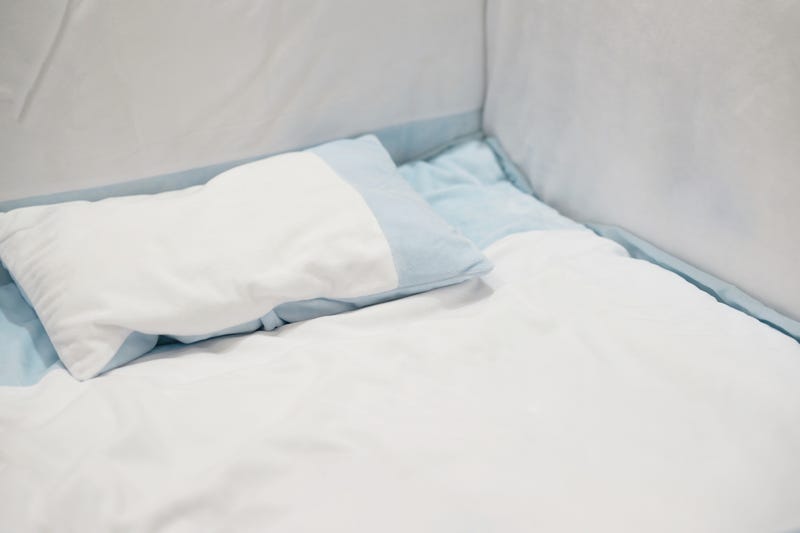
U.S. President Joe Biden signed a federal law this week that prohibits the manufacture and sale of crib bumpers or inclined sleepers – products linked to nearly 200 infant deaths – for babies.
According to U.S. Consumer Product Safety Commission data cited by Rep. Jan Schakowsky (D-Ill.), who introduced the bill “Safe Sleep for Babies Act of 2021,” with Rep. Tony Cárdenas (D-Calif.), 83 deaths have been linked to crib bumpers and 97 have been linked to inclined sleepers.
CPSC Commissioner Rich Trumka, Jr., said in a statement Tuesday that crib bumpers alone were responsible for at least 107 infant deaths between 1990 and 2016.
“As a grandfather, this is very concerning to me,” said Cárdenas. “Parents and caregivers deserve the peace of mind that comes with knowing the sleep products they purchase are safe.”
“Crib bumpers are soft, fabric pads that tie up to the insides of cribs; they claim to stop babies from getting injured by banging their heads or getting extremities stuck in the crib slats,” said a Good Housekeeping article from earlier this year.
Nancy Cowles, executive director of the Kids In Danger non-profit organization, has been warning the CPSC about the dangers of crib bumpers for years. She said the pads were initially developed when crib slats were too far apart and presented a strangling risk. This issue has long been solved by standards set for crib slats.
“The case against permitting padded crib bumpers in a child’s sleep environment is clear. This isn’t medicine vital to a child’s health that may have some side-effects we must weigh,” Cowles said in 2016. “It isn’t a product that serves a useful purpose for safety and proper education on its safe use is needed. This is an unnecessary accessory to decorate a nursery that has no place in a safe sleep environment.”
Cowles said that research going back to at least 2007 showed that bumper pads were linked to 27 deaths and that “babies had been found with their face or head against the bumper pad or wedged between the mattress and bumper pad.”
Although the new law does not prohibit breathable mesh liners, Good Housekeeping said parents should avoid those as well.
According to the American Academy of Pediatrics site healthychildren.org, inclined sleepers “allow babies to sleep at a 30-degree angle,” and are also known as baby nests, docks, pods, loungers, rockers, nappers or infant positioners. Research from the CPSC indicates that infants should not sleep at an incline of more than 10 degrees.
Schakowsky said the CPSC has previously issued recalls of the Fisher-Price Rock ‘n Play, Kids II Rocking Sleeper, 4-in-1 Rock 'n Glide Soother and the 2-in-1 Soothe 'n Play Glider, among others.
“The American Academy of Pediatrics recommends that all infants should sleep on flat and firm surfaces,” to prevent the 3,400 sleep-related infant deaths reported annually, said the academy. “Babies should sleep by themselves, without any bumpers, soft bedding, pillows, or stuffed toys.”
Within 180 days of Monday, both crib bumpers, and inclined sleepers for infants up to 1 year old “shall be considered a banned hazardous product under section 8 of the Consumer Product Safety Act,” in the U.S., regardless of their date of manufacture.
“After years of perseverance and many tears, the Safe Sleep for Babies Act has finally been signed into law,” said Sara Thompson, a mother whose child died in an inclined sleeper, according to KID. “Hopefully, this will help lower the number of preventable infant deaths. For all of our angels and all of the grieving parents, this is a victory in their memory. I urge parents now to take the danger seriously and listen to the science.”


